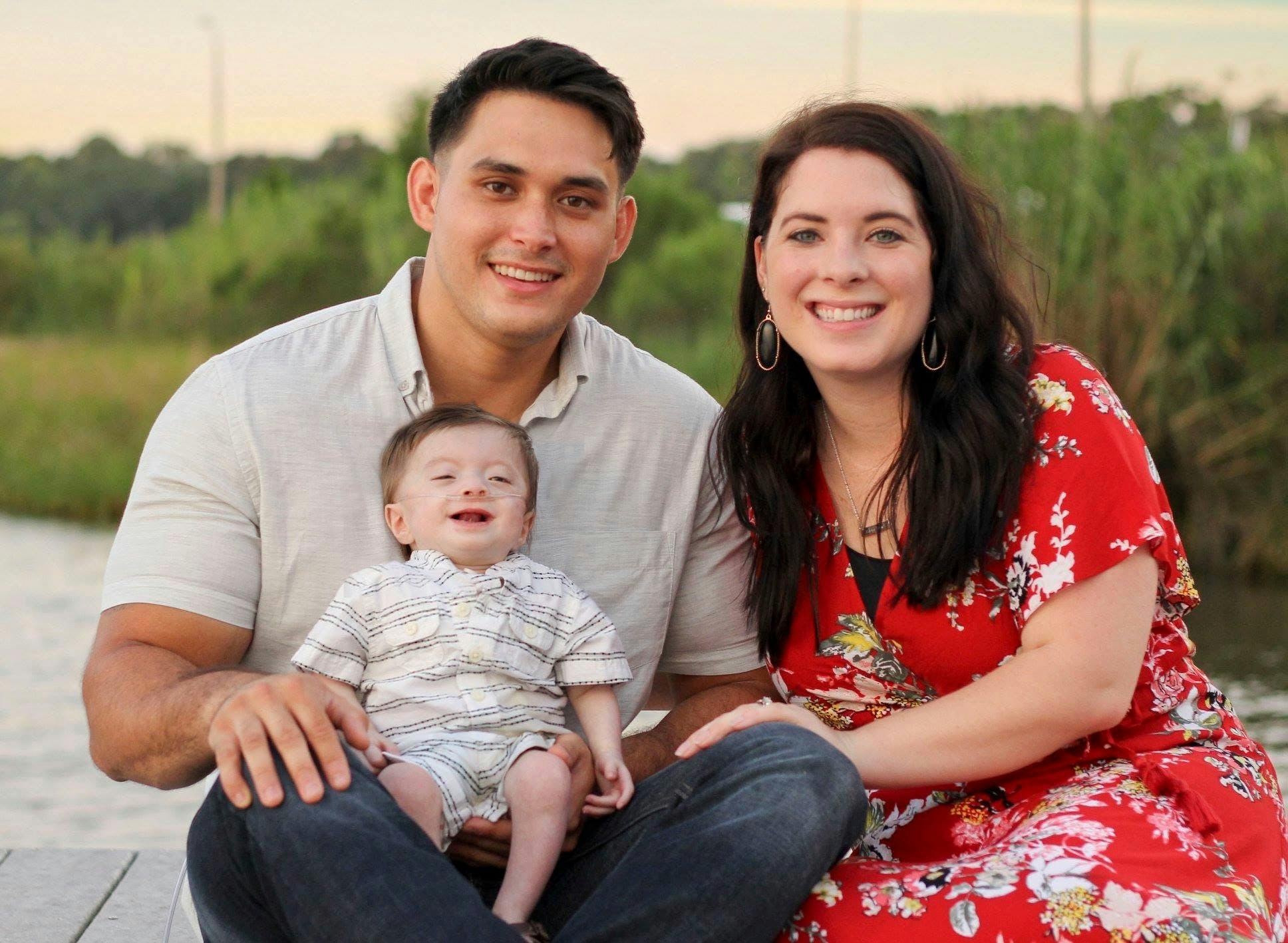Carter Harrison
Posted Oct 07 2019


So Much More Than A Syndrome
Meredith Harrison had a very normal pregnancy, so when her son was born with a heart defect, it came as a total shock.
Carter was immediately transferred to the Neonatal Intensive Care Unit (NICU) of the Studer Family Children’s Hospital, where he would spend the first two weeks of his life. Meredith credits pediatric cardiologist Dr. Matthew Furst for saving Carter’s life multiple times since then.
“We knew it was the beginning of a long road, and we saw him so often he became like family,” she recalls. “We found out how special the people who work with these sick kids are, because we had so many wonderful experiences with the nurses and doctors at Sacred Heart.”
Carter was diagnosed with Tetralogy of Fallot, a combination of congenital abnormalities that would require repeated open heart surgeries – the first of which he underwent at Children’s of Alabama – at only 28 days old.
“I think we just had peace from God,” Meredith shares. “We never got to take him home. I barely got to hold him. All those expectations people set up during those nine months of pregnancy … we had none of that.”
Following his surgery and four days of life support that damaged his developing lungs, Carter was on a breathing tube for three weeks. His mother finally got to hold him on January 1 – a brand new year.
It was challenging for the whole family, she says, because they waited nine months to meet him, too. The doctors allowed visitors, but their voices excited the baby, and that was bad for his unstable condition.
Next came the swallow studies, which determined Carter was silently aspirating while eating. With little information and next to no preparation, the Harrisons were told their son would need a gastronomy tube, or G-tube, to deliver food directly to his stomach.
A few weeks later, the new family finally went home. But only three days later, they returned to the hospital – this time, at Sacred Heart.
“We did not know how to take care of this baby,” Mom says. “We had three days at home with him … he was now on oxygen, he needed 10 different medications.”
When the team learned the Harrison’s story, they jumped in. Meredith and Dennis credit so much to the nurses and doctors – especially pediatric surgeon Dr. Bryan Weidner, dietician Kristy Ladd and pediatrician Dr. Jason Straub – who taught them how to care for their child with incredible needs.
“We didn’t know we were going to have a kid with medical issues, so we’re very thankful to have the Children’s Hospital here to take care of him,” Meredith says. “If the resources aren’t here, they get us to where we need to go.”
In addition to his heart defect, Carter was facing a slew of issues including low platelet count, a low immune system, weak muscle tone, eye problems, a helmet and developmental delays. He had a team of doctors working on each concern, but none of them could figure out how they were connected.
So Carter was back in the hospital once or twice a month – until his genetic team in Birmingham enrolled him in a research study at Children’s of Alabama. Through genome sequencing, they looked at everything in his little body. His parents were told there was a 30 percent chance of any explanation, and only a 10 percent chance of a full diagnosis.
They were surprised when, after only four months, Carter received a full diagnosis – Takenouchi-Kosaki Syndrome, a condition so rare only 16 people in the world have been diagnosed with it. Because of DNA changes among the 16, the Harrisons could only compare Carter’s case with three others worldwide.
“We were eager to be able to say, ‘This is how Carter’s life is going to be,” but with so many variables, it isn’t that simple,” Meredith explains.
So they gather all the information they can, and they never stop fighting on behalf of their little boy. Meredith has connected with a mom in Canada, whose little girl has the same syndrome. Now, she says, they’re fighting for her, too.
In March 2019, on Rare Disease Day, Meredith and Dennis spoke about Carter and his journey in front of 100 doctors. When talking to the geneticists, the Harrisons implored them to take a closer look at the syndrome – because everyone diagnosed with it would benefit.
“We’ve been given this platform, and we’re trying to go with it, but I never wanted Carter to be a champion for anything,” Meredith says. “God laughs at our plans. Here we are with Carter in the spotlight, and I think he’s definitely well deserving of that.”
Enrolled in the Early Steps program since January 2018, Carter can walk and talk today – things most people with his syndrome can’t do. He has physical, speech and feeding therapy once a week at home, and sees 10 to 13 specialists at the hospital.
“Thankfully the world is getting a lot more accepting of people who are different, but there are always going to be people who are not,” Meredith shares. “We have been very careful so far who we have told – because we don’t want people to look at Carter and see a syndrome. He’s so much more than that, and he’s already beating it.”